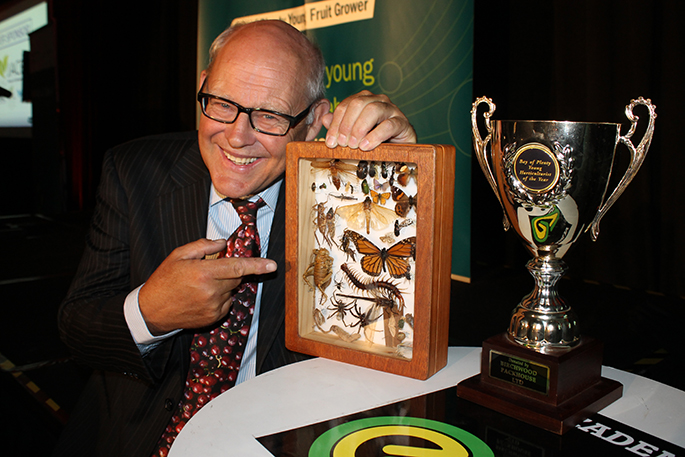Tarantulas taste like crayfish and are delicious cooked over an open fire, says Ruud Kleinpaste – also known as ‘The Bug Man'.
'I felt a bit bad at first about eating a tarantula but the locals in South America had no problem finding several in the jungle. They removed the abdomen and singled the spiders over a fire, because the hairs can be toxic, cooked the thorax and legs for about five minutes until they bubbled and we ate them – they were delicious,” says Ruud, who has eaten bugs many times and believes they will be an important future food source for humans.
He's also eaten water insects, grasshopper and crickets. While eating insects is an ancient and accepted part of many cultures, Ruud says the aversion to consuming bugs among Westerners, including Kiwis, is because we are 'wusses”.
'Kiwis call crayfish, crabs, cockles, pipi, oysters and mussels delicacies but these are just slugs, snails and the spiders of the sea.
'So what's the difference between eating spiders or snails from the land, as opposed to spiders and snails from the sea? I don't get that,” says Ruud, who was MC at the 2017 Bay of Plenty Young Grower of Year awards in February.
Insect protein
Best known in New Zealand through his radio and television work as an advocate for and educator in the understanding and appreciation of insects, spiders and other terrestrial arthropods, Ruud presented an address called ‘Bugs in Our System' at the awards.
Bugs are much better converters of green food to protein than sheep and cattle, say Ruud. It takes about two kilograms of feed to make one kilogram of insect meat, while to produce the equivalent amount of beef takes eight to 10kg of feed.
'Bugs are easy to grow commercially. They breed like the clappers and the protein they produce is high quality, without much cholesterol.”
Farming bugs for human consumption could mean less land and fewer resources needed to grow protein, and greenhouse gas emissions would be significantly reduced.
Circular system
But bugs, says Ruud, already contribute to our economies and environment in many other ways, as part of a circular system in which there is no waste. It's a system humans would do well to learn from, he warns.
'Each and every one of us has got to start taking responsibility for the environment. Our economic model is linear, not circular. Growth at all costs is not working. We have to learn to live within our means for the health and future of our planet – it's the only one we have.”
Bugs work 24/7 to keep the environment going. 'For example, bees pollinate up to one-third of everything we eat, including meat. Insects are involved in seed dispersal, they also take care of waste.”
Science is learning from bugs too, using the amazing attributes of insects to devise new systems of flight, solar power and robotics, among many other advances, says Ruud.
He seldom travels without his bugs – a framed collection of New Zealand natives, including a weta and a very large centipede, which are examples of the bugs he doesn't necessarily want on the menu – but does want to see prosper in their natural environment.



0 comments
Leave a Comment
You must be logged in to make a comment.